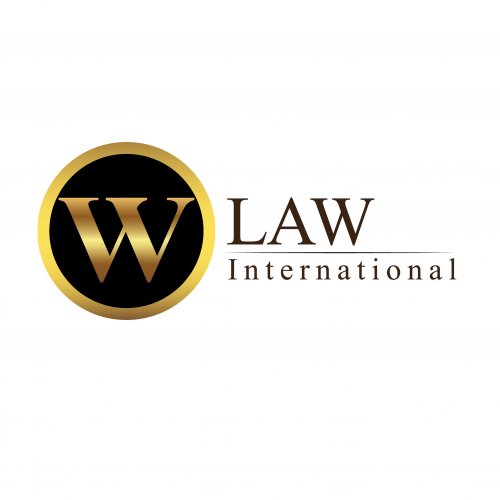Best Probate Lawyers in Phuket
Share your needs with us, get contacted by law firms.
Free. Takes 2 min.
List of the best lawyers in Phuket, Thailand
About Probate Law in Phuket, Thailand
Probate in Phuket, Thailand refers to the legal process that follows the death of an individual, involving the administration of their estate and execution of their will. The probate process includes validating a will, settling debts, and distributing the remaining assets to the rightful heirs. In Phuket, as with the rest of Thailand, probate laws ensure that the distribution of assets is handled according to legal guidelines, providing clarity and resolution during what can be a complex and emotional time.
Why You May Need a Lawyer
Dealing with probate matters in Phuket can be complicated for several reasons. You may require a lawyer if you face issues such as contesting a will, managing and valuing the deceased's assets, distributing assets among heirs, or addressing any disputes among beneficiaries. Additionally, if there are significant estates with diverse assets or international elements involved, having legal assistance becomes even more crucial to navigate local laws and any cross-border legal issues effectively.
Local Laws Overview
In Phuket, the probate process is governed by Thai civil and commercial laws. Key aspects include the need to have a will validated by the court, the appointment of an executor to manage the estate, and adhering to specific procedures for asset distribution. Thai law permits both national and expatriate wills, but compliance with local procedures is essential for smooth administration. Non-resident asset owners may need to engage both local and international legal support, given the complexities of Thai inheritance laws and tax implications.
Frequently Asked Questions
What is the first step in the probate process in Phuket?
The initial step involves filing a petition for probate with the relevant court in Phuket to validate the deceased's will and appoint an executor.
How long does the probate process usually take?
The duration can vary depending on the complexity of the estate, but generally, it can take several months to over a year to complete the process in Phuket.
What if the deceased did not leave a will?
If there is no will, the estate is distributed according to Thai intestacy laws, which prioritize the surviving spouse, children, and close relatives in a defined order of inheritance.
Can a will made outside Thailand be valid in Phuket?
Yes, a will made outside Thailand can be valid, provided it meets certain legal standards and is properly authenticated through the probate court process.
Who is responsible for debts left by the deceased?
The estate of the deceased is responsible for settling any outstanding debts before distribution to the beneficiaries occurs.
Are foreigners allowed to own assets in Thailand?
Yes, foreigners can own certain assets such as condominium units under specific conditions, but land ownership restrictions apply to non-nationals.
What taxes apply to inherited assets in Phuket?
There may be inheritance tax liabilities depending on the size and nature of the estate. Consulting a local legal expert for specific tax advice is recommended.
Who can be an executor of a will?
The executor can be any competent person named in the will; however, the appointment is subject to court approval.
Can a will be contested?
Yes, beneficiaries or interested parties can contest a will on grounds such as undue influence, lack of testamentary capacity, or improper execution.
Is it necessary to have a lawyer during the probate process?
While it's not legally mandatory to have a lawyer, professional legal assistance is highly recommended to navigate the complexities of Thai probate law effectively.
Additional Resources
For further information and assistance, individuals can reach out to the Phuket Provincial Court, legal aid organizations, or specialized law firms in Thailand. These entities can provide detailed guidance on probate processes and connect you with experts well-versed in Thai and international succession laws.
Next Steps
If you need legal assistance in probate matters in Phuket, start by consulting with a qualified local lawyer who specializes in inheritance law. They will help navigate the legal system, advise on your specific situation, and ensure compliance with Thai legal requirements. Consider arranging an initial consultation to discuss your needs, gather documentation related to the deceased's estate, and outline a plan of action tailored to your circumstances.
Lawzana helps you find the best lawyers and law firms in Phuket through a curated and pre-screened list of qualified legal professionals. Our platform offers rankings and detailed profiles of attorneys and law firms, allowing you to compare based on practice areas, including Probate, experience, and client feedback.
Each profile includes a description of the firm's areas of practice, client reviews, team members and partners, year of establishment, spoken languages, office locations, contact information, social media presence, and any published articles or resources. Most firms on our platform speak English and are experienced in both local and international legal matters.
Get a quote from top-rated law firms in Phuket, Thailand — quickly, securely, and without unnecessary hassle.
Disclaimer:
The information provided on this page is for general informational purposes only and does not constitute legal advice. While we strive to ensure the accuracy and relevance of the content, legal information may change over time, and interpretations of the law can vary. You should always consult with a qualified legal professional for advice specific to your situation.
We disclaim all liability for actions taken or not taken based on the content of this page. If you believe any information is incorrect or outdated, please contact us, and we will review and update it where appropriate.










